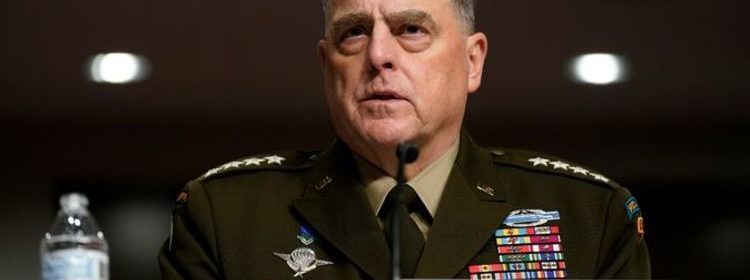US Afghanistan withdrawal hearing: The 4 key moments

Afghanistan army collapse was a ‘surprise’ says Lloyd Austin
We use your sign-up to provide content in ways you’ve consented to and to improve our understanding of you. This may include adverts from us and 3rd parties based on our understanding. You can unsubscribe at any time. More info
A cross-examination of the USA’s withdrawal from Afghanistan has taken place in the Senate. The event saw some of the USA’s top military personnel scrutinised in a heated hearing of the Senate’s armed security committee execution of the departure, as well as the 20 years of doomed foreign policy that preceded it.
The chaotic evacuation of thousands of remaining US troops took place in August as the Taliban swept to power following 20 years of USA and allied intervention.
Two US generals, Joint Chiefs of Staff Chairman Mark Milley and US Central Command head Frank McKenzie were questioned alongside Defence Secretary Lloyd Austin on Tuesday.
US troops entered Afghanistan in 2001, and by the time they left the country had spent £724 billion on the war and occupation, which began in response to the 9/11 attacks.
In the week between the fall of Kabul to Taliban forces, the US evacuated its remaining 4,000 troops.
READ MORE: US Defence Secretary says Pentagon was taken ‘by surprise’


Generals directly contradicted Biden
Some parts of the hearing directly contradicted President Joe Biden’s assertion that he was advised to keep a small number of troops in Afghanistan.
Mr Biden told ABC News on August 19: “No one said that to me that I can recall.”
Both Mr Milley and Mr McKenzie declined to detail their direct conversations with Biden, but their testimony indicated he was aware of the recommendation.
Mr Milley rejected the suggestion by Republican Senator Tom Cotton that he should resign due to Mr Biden’s alleged ignorance of his advice.
He said: “It would be an incredible act of political defiance for a commissioned officer to just resign because my advice is not taken.
“This country doesn’t want generals figuring out what orders we’re going to accept and do, or not. That’s not our job.”

The evacuation was a “logistical success”
General Mark Milley told the senate the evacuation, in which several US soldiers died, was a “logistical success but a strategic failure”.
“It is obvious the war in Afghanistan did not end on the terms we wanted,” Milley said, noting “the Taliban is now in power in Kabul.”
He continued: “We must remember that the Taliban was and remains a terrorist organisation, and they still have not broken ties with al-Qaida.”
“I have no illusions who we are dealing with.
“It remains to be seen whether or not the Taliban can consolidate power, or if the country will further fracture into civil war.”
DON’T MISS
Macron ‘resets’ relationship with Biden [INSIGHT]
China vs USA: The coded message Biden used to issue fresh threat [ANALYSIS]
Hypersonic missile showdown: US send signal to Putin [REPORT]

China vs USA
In his opening remarks, Mr Milley offered a forceful defence of calls with his Chinese counterpart during the last months of the Trump administration.
Mr Milley said he acted on “concerning intelligence” indicating the Chinese were afraid the US would attack them.
He said: “My job at that time was to de-escalate.
“My message again was consistent: stay calm, steady, and de-escalate. We are not going to attack you.”
The collapse of the Government “took us all by surprise”
Mr Austin testified that the speed of the collapse was not necessarily anticipated in this way.
He said: “We helped build a state, but we could not forge a nation.
“The fact that the Afghan army we and our partners trained simply melted away – in many cases without firing a shot – took us all by surprise.”
Mr Austin said officials had discussed a “range of possibilities” but did not “plan against a collapse of the government in 11 days”.
Source: Read Full Article
